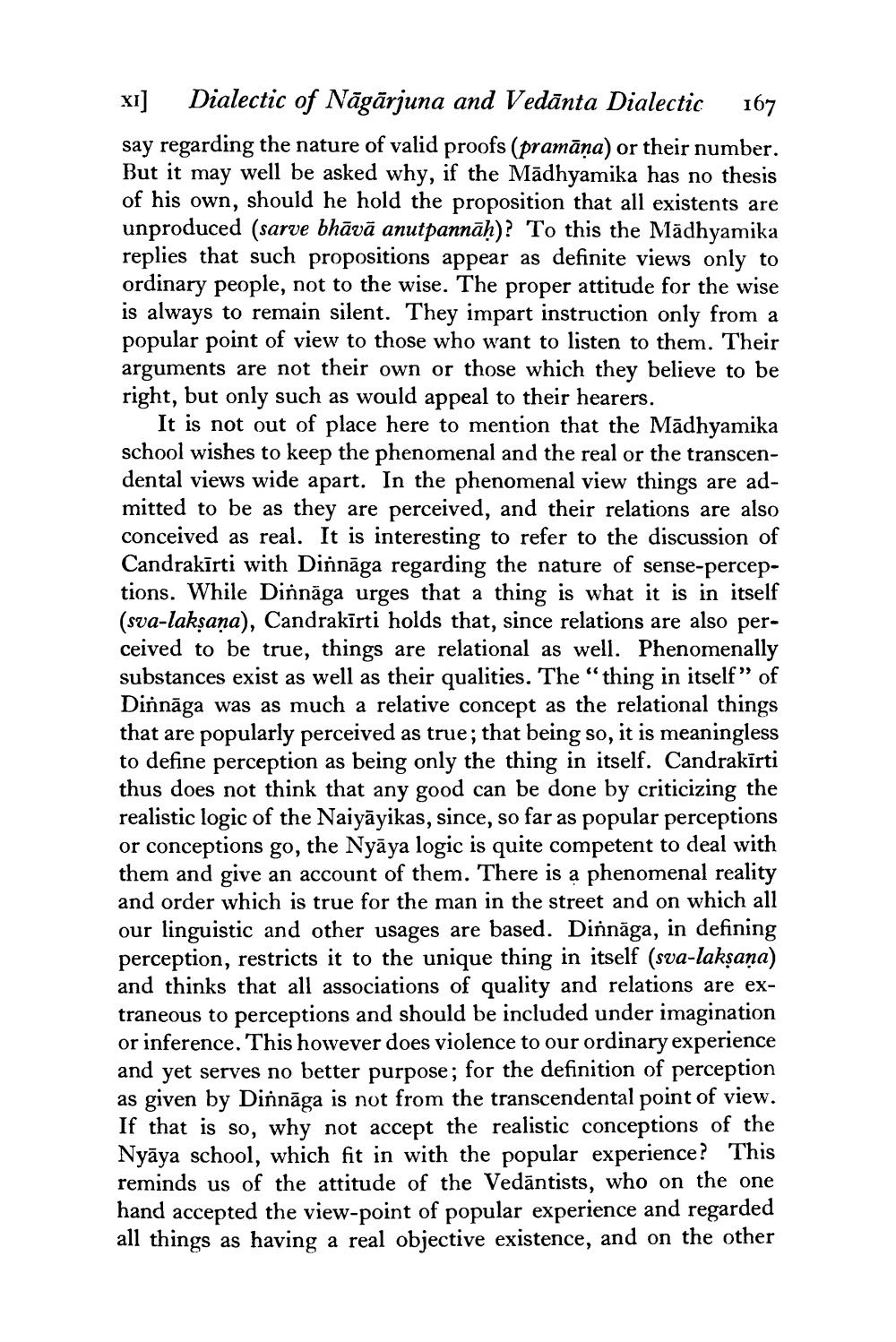________________
XI]
Dialectic of Nagarjuna and Vedānta Dialectic
167
say regarding the nature of valid proofs (pramāṇa) or their number. But it may well be asked why, if the Madhyamika has no thesis of his own, should he hold the proposition that all existents are unproduced (sarve bhāvā anutpannāḥ)? To this the Madhyamika replies that such propositions appear as definite views only to ordinary people, not to the wise. The proper attitude for the wise is always to remain silent. They impart instruction only from a popular point of view to those who want to listen to them. Their arguments are not their own or those which they believe to be right, but only such as would appeal to their hearers.
It is not out of place here to mention that the Madhyamika school wishes to keep the phenomenal and the real or the transcendental views wide apart. In the phenomenal view things are admitted to be as they are perceived, and their relations are also conceived as real. It is interesting to refer to the discussion of Candrakirti with Dinnaga regarding the nature of sense-perceptions. While Dinnaga urges that a thing is what it is in itself (sva-lakṣaṇa), Candrakīrti holds that, since relations are also perceived to be true, things are relational as well. Phenomenally substances exist as well as their qualities. The "thing in itself" of Dinnaga was as much a relative concept as the relational things that are popularly perceived as true; that being so, it is meaningless to define perception as being only the thing in itself. Candrakirti thus does not think that any good can be done by criticizing the realistic logic of the Naiyāyikas, since, so far as popular perceptions or conceptions go, the Nyaya logic is quite competent to deal with them and give an account of them. There is a phenomenal reality and order which is true for the man in the street and on which all our linguistic and other usages are based. Dinnaga, in defining perception, restricts it to the unique thing in itself (sva-lakṣaṇa) and thinks that all associations of quality and relations are extraneous to perceptions and should be included under imagination or inference. This however does violence to our ordinary experience and yet serves no better purpose; for the definition of perception as given by Dinnaga is not from the transcendental point of view. If that is so, why not accept the realistic conceptions of the Nyāya school, which fit in with the popular experience? This reminds us of the attitude of the Vedantists, who on the one hand accepted the view-point of popular experience and regarded all things as having a real objective existence, and on the other




